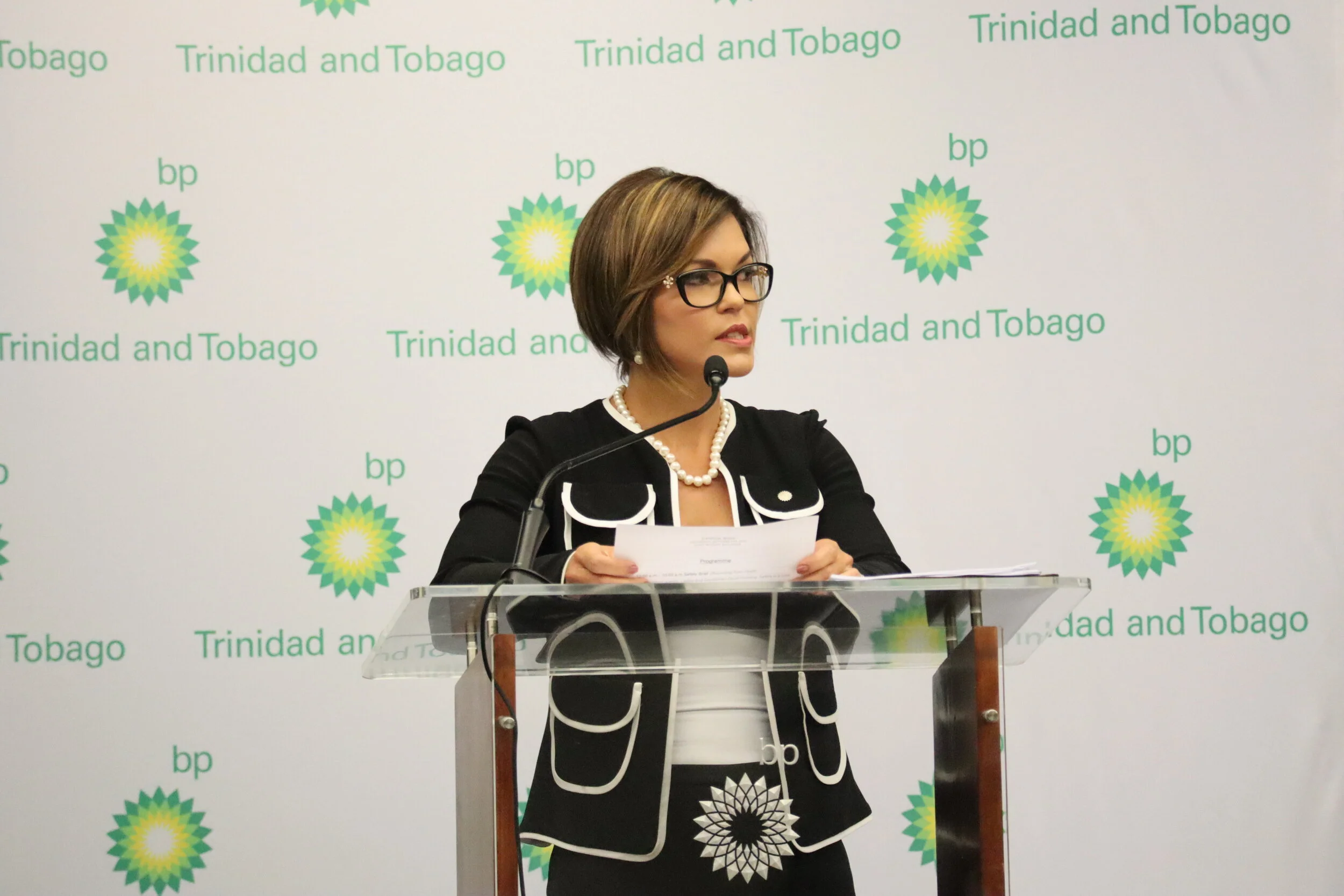Q&A with Giselle Thompson, vice president corporate operations, bpTT
Q: Globally, bp announced its net zero ambitions in February. What are those ambitions?
Our ambition is to be a net zero company by 2050 or sooner, and to help the world get to net zero. This means tackling around 415 million tonnes of emissions – 55 million from our operations and 360 million tonnes from the carbon content of our upstream oil and gas production. Importantly, these are absolute reductions to net zero, which is what the world needs most of all. We are also aiming to cut the carbon intensity of the products we sell by 50% by 2050 or sooner.
Our ambition has 10 aims. Five are focused on becoming a net zero company. These include a focus on attaining net zero in our operations, halving carbon intensity in the products we sell and reducing methane emissions.
Five focus on helping the world to meet net zero:
Finding solutions to help cities to decarbonise, promoting transparency in climate-related financial disclosures, reframing relationships with trade associations, incentivising employees to deliver on our aims and focusing on advocacy on climate change issues.
We believe these 10 aims – taken together as a package – set out a path that is consistent with the Paris goals and our new purpose.
Q: How is bp ensuring that it can deliver on its ambitions?
We have embarked on the most fundamental reorganisation of the company in our history to be able to deliver in line with the aims. In addition, the aims we have set for the company clearly define the pathways and we believe they are challenging yet achievable and most importantly, measurable.
Across all of our operations, we are considering the investments, technology and activities required to deliver our ambition and building those into our long- term plans.
Q: What does this mean for bp’s operations in Trinidad and Tobago?
Over the past 18 months, the Trinidad and Tobago business has been developing a robust strategy to deliver a lower carbon future.
This strategy is aligned with bp’s net zero ambitions and focuses on three broad areas.
Firstly, we will look at our operational emissions. Specifically, we’re focusing on reducing emissions and improving energy efficiency in our existing and future operations. We have projects that look at power generation and energy efficiency, facility design, logistics and infrastructure, and operational activities such as flaring and purging. We have already achieved significant emission reductions and have a hopper of projects that we are evaluating to continue to drive further and sustained emission reductions.
Secondly, we will look at value chain emissions. We’re pursuing opportunities to decarbonise gas value chains through technologies such as Carbon Capture, Utilization, and Storage (CCUS) and exploring new low carbon business models such as solar and hydrogen. Globally, this is a very exciting space and one in which we think there is promise right here in Trinidad and Tobago.
Thirdly, we are leveraging partnerships to create a different future. We’re working in partnership with other stakeholders to support Trinidad and Tobago in its own energy transition ambitions.
You would have heard about our partnership with Lightsource bp and consortium partner Shell on Trinidad and Tobago’s first commercialscale renewables energy project. We’re excited at the possibility to be a part of this country’s thrust towards power generation from renewables.
This project will be key to underpin the country’s commitment to achieving 10% of power generation from renewable sources by 2021. This supports the broader national goal to reduce cumulative national greenhouse gas emissions by 15% by 2030.
Another important area of partnership is in educating the public on the importance of energy conservation and energy efficiency. To support this, we are pleased to be partnering with the Ministry of Public Utilities and Shell on a school education programme through the Pennacool platform which will deliver online content focused on energy conservation and energy efficiency to primary school children.
We’re also tapping into our global teams and experts and making the resources of bp’s Advancing the Energy Transition (AET) team available to the government and other stakeholders to study our existing energy systems and identify pathways to allow Trinidad and Tobago to transition to a sustainable low carbon future.
Q: COVID-19 has had an impact on energy demand and prices. How has this affected your plans/ambitions?
The economic fallout due to COVID-19 has brought into focus the need to improve efficiency but the current environment should not be the only reason we are driven to change. Some think that the shift to a lower carbon future will be hampered by a lack of capital which all energy companies are facing right now. bp, however, remains committed to its net zero ambitions because we believe that regardless of the effects of COVID-19, the need to address climate change will remain one of the biggest challenges facing us.
Locally, we continue to work to implement our low carbon strategy and while there may have been some rephasing of activity due to COVID-19 measures, we remain committed to our plans, the direction is set and we are moving forward.
COVID-19 restrictions have also led to more emphasis on remote working and exploring different approaches, especially in the way we execute activities for our offshore sites. These remote work options are allowing us to execute our activities more efficiently using data and technology to both remove people from harm’s way and reduce our logistics activity such as employee commutes, flights and marine vessel activity. These all have a positive impact as well on our operational emissions. For example, our Return to Scene (R2S) 3D visualisation technology is allowing office-based staff to remotely carry out inspections and job planning for our platforms. We’ve been using R2S for over a year, but the current restrictions due to COVID-19 have pushed us to re-explore our use cases taking this technology to its fullest potential and in return maximising business value.

